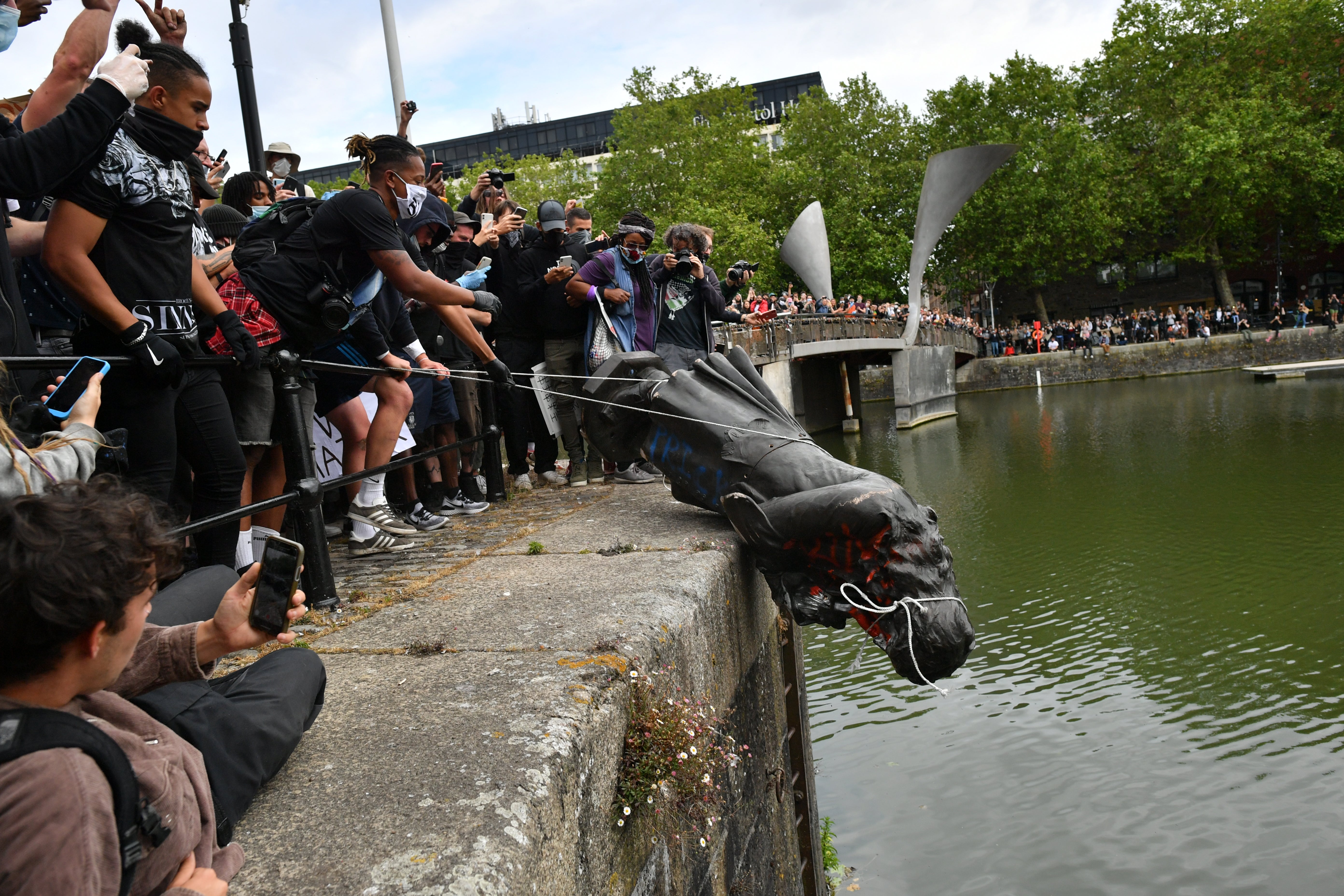
The criminal damage trial of the co-founder of Extinction Rebellion has been delayed pending a High Court judgment over the toppling of Edward Colston’s statue in Bristol.
Gail Bradbrook, 49, appeared at Isleworth Crown Court on Tuesday accused of causing £27,500 in damage to the Department for Transport building in Westminster by smashing a plate-glass window during a protest in London on October 15 2019.
Her trial was due to start on Monday, but was delayed after Attorney General Suella Braverman asked for clarification from the Court of Appeal over the circumstances in which defendants can cite their human rights as a defence in a case of criminal damage.
Ms Braverman made the referral in the wake of the acquittals of four people accused of pulling down the statue of slave trader Edward Colston in Bristol during a Black Lives Matter protest.

The bronze memorial was then rolled by a crowd through the streets of the city before being dumped in the harbour.
Citing the case in his decision to delay the trial until November, Judge Martin Edmunds said: “The trial, which is listed today, can’t go ahead because the Attorney General has referred to the Court of Appeal the legal questions that arose from the Bristol case.”
Rhian Graham, 30, Milo Ponsford, 26, Sage Willoughby, 22, and Jake Skuse, 33, were acquitted of criminal damage despite acknowledging their part in toppling the monument.
Jurors were asked to decide if they believed a conviction for criminal damage was a “proportionate interference” with the defendants’ human rights of freedom of expression, thought and conscience.
It was the final question in the “route to verdict” – a series of steps for a jury to follow when deciding if someone is guilty or not guilty.
Ms Braverman said last Wednesday that she had asked judges at the Court of Appeal to clarify the law around whether someone can use a human rights defence in a criminal damage case.
She added that she had also asked the court to consider whether it was up to juries to decide if a criminal conviction is a proportionate interference with someone’s human rights.
Bradbrook was released on unconditional bail to return to Isleworth Crown Court for a five-day trial on November 21 of this year.







